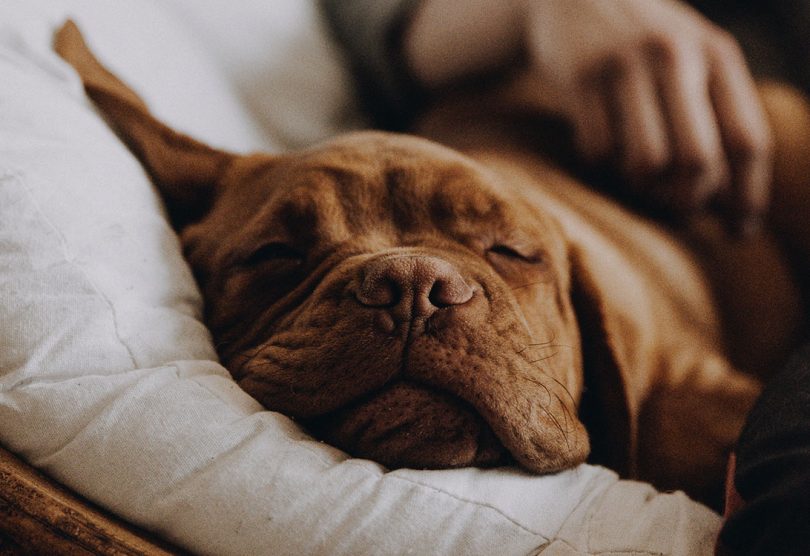Have you ever tried to take an afternoon nap with your four-legged BFF and noticed them snoring? You may have asked yourself if that’s normal or a reason to worry. While snoring in both humans and dogs occurs for the same reason – blocked airways – there are some other factors to consider.
Dog Breed
If your dog is a short-snouted dog, like an English Bulldog or Pug, they are more prone to snoring. Their flattened noses mean they have shorter air passages. This combined with their position and the shape of their neck while sleeping means snoring is likely. If the noise gets loud and bothersome, try repositioning them to open their airways and stop the snoring (for a bit).
Overweight Dogs
Overweight and obese dogs have extra fat that can block airways while sleeping, which (surprise!) causes snoring. It’s best to keep your dog at a healthy weight, not just to avoid snoring, but to ensure healthier bones and joints. A normal weight means they’ll be more comfortable in the long run.
Allergies
Dogs can suffer from allergies just like humans do. You may have dust, pollen, or dander floating around in the air of your home, which can make breathing difficult for your dog if they’re allergic. Consult your veterinarian if you think your dog might be suffering from allergies. There are medications that can help!
Sickness
If your dog has a cold, it may have a stuffy or runny nose making breathing more labored even while sleeping. Again, consulting your vet is the best option if you think your dog might be sick. Antibiotics can help treat a cold. And, it wouldn’t hurt to use a humidifier to moisten the air and create a more comfortable breathing environment for both you and your pup.
Dental Issues
An abscessed tooth or other growth in a dog’s mouth can block airways causing snoring. You’ll probably notice your dog eating slower or avoiding chewing on one side if they have a dental problem. Dental issues can escalate quickly and be very painful for your pet, so it’s important to get your dog to the vet as soon as possible if you notice any discomfort in the mouth area.
Sleep Apnea
It’s much more common for humans to suffer from sleep apnea than dogs, but it’s possible in canines. You might notice your dog has shallow breaths while sleeping, or they might stop breathing for a few seconds altogether. If you think your dog has sleep apnea, head to your vet to get them checked out.
In the end, a snoring dog could just be a snoring dog. Keeping them up to date on vaccinations and visiting the vet annually will ensure your furball stays healthy. If you notice your dog snoring but is otherwise acting normal, mention it to your vet. They are there for both of you and will gladly field your questions.

